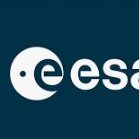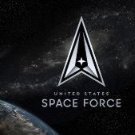Members Can Post Anonymously On This Site
Space Telescope Science Institute Astrophysicist Elected to National Academy of Sciences
-
Similar Topics
-
By Space Force
The discussion was part of the 40th Space Symposium, held by the Space Foundation to drive conversations on data, partnerships and innovation across the space industry.
View the full article
-
By NASA
NASA/Joel Kowsky A Soyuz rocket launches to the International Space Station with Expedition 73 crew members including NASA astronaut Jonny Kim on Tuesday, April 8, 2025, at the Baikonur Cosmodrome in Kazakhstan.
The crew arrived at the space station the same day, bringing the number of residents to 10 for the next two weeks. Expedition 73 will begin on Saturday, April 19, following the departure of NASA astronaut Don Pettit and Roscosmos cosmonauts Alexey Ovchinin and Ivan Vagner, as they conclude a seven-month science mission aboard the orbiting laboratory.
Throughout his eight-month stay aboard the orbital outpost, Kim will conduct scientific research in technology development, Earth science, biology, and human research.
Follow space station activities on the International Space Station blog.
Image credit: NASA/Joel Kowsky
View the full article
-
By NASA
Explore This Section Science Science Activation NASA Science Supports Data… Overview Learning Resources Science Activation Teams SME Map Opportunities More Science Activation Stories Citizen Science 3 min read
NASA Science Supports Data Literacy for K-12 Students
Data – and our ability to understand and use it – shapes nearly every aspect of our world, from decisions in our lives to the skills we need in the workplace and more. All of us, as either producers or consumers of data, will experience how it can be used to problem-solve and think critically as we navigate the world around us. For that reason, Data Science has become an increasingly essential and growing field that combines the collection, organization, analysis, interpretation, and sharing of data in virtually every area of life. As more data become more openly available, our Data Science skills will be of increasing importance. And yet, there is a widening gap between what students learn in school and the skills they will need to succeed in a data-driven world. The integration of Data Science into K-12 education opens doors to higher education, high-paying careers, and empowering learners to eventually participate in the creation of new knowledge and understanding of our world, and at least 29 states have reported some level of data science implementation at the K-12 level, including standard or framework adoption, course piloting, and educator professional learning.
In February 2025, the first-ever Data Science Education K-12: Research to Practice Conference (DS4E) took place in San Antonio, TX. A number of representatives from NASA’s Science Activation program and other NASA partners attended and presented along with over 250 educators, researchers, and school leaders from across the nation. Science Activation projects share a passion for helping people of all ages and backgrounds connect with NASA science experts, content, experiences, and learning resources, and the AEROKATS & ROVER Education Network (AREN); Place-Based Learning to Advance Connections, Education, and Stewardship (PLACES); Global Learning and Observations to Benefit the Environment (GLOBE) Mission Earth; and My NASA Data teams did just that. Their presentations at the conference included:
“BYOD – Build or Bring Your Own Data: Developing K-12 Datasets” (PLACES) “Using NASA Data Resources as a Tool to Support Storytelling with Data in K-12 Education” (My NASA Data) “Place-Based Data Literacy: Real People, Real Places, Real Data” (AREN) Conference participants expressed interest in learning more about NASA assets, including data and subject matter experts. Stemming from their participation in this first DS4E, several Science Activation teams are collaborating to potentially host regional events next year under the umbrella of this effort (PLACES in particular), a wonderful example of how Science Activation project teams help lead the charge in the advancement of key Science, Technology, Education, and Mathematics (STEM) fields, such as Data Science, to activate minds and promote a deeper understanding of our world and beyond.
Learn more about how Science Activation connects NASA science experts, real content, and experiences with community leaders to do science in ways that activate minds and promote deeper understanding of our world and beyond: https://science.nasa.gov/learn
Data Science Education K-12 Research to Practice Conference Share
Details
Last Updated Apr 09, 2025 Editor NASA Science Editorial Team Related Terms
Science Activation Earth Science Grades 5 – 8 for Educators Grades 9-12 for Educators Grades K – 4 for Educators Opportunities For Educators to Get Involved Opportunities For Researchers to Get Involved Explore More
3 min read Findings from the Field: A Research Symposium for Student Scientists
Article
1 day ago
34 min read Style Guidelines for ‘The Earth Observer’ Newsletter
Article
1 day ago
5 min read Connected Learning Ecosystems: Educators Gather to Empower Learners and Themselves
Article
2 days ago
Keep Exploring Discover More Topics From NASA
James Webb Space Telescope
Webb is the premier observatory of the next decade, serving thousands of astronomers worldwide. It studies every phase in the…
Perseverance Rover
This rover and its aerial sidekick were assigned to study the geology of Mars and seek signs of ancient microbial…
Parker Solar Probe
On a mission to “touch the Sun,” NASA’s Parker Solar Probe became the first spacecraft to fly through the corona…
Juno
NASA’s Juno spacecraft entered orbit around Jupiter in 2016, the first explorer to peer below the planet’s dense clouds to…
View the full article
-
Check out these Videos





Recommended Posts
Join the conversation
You can post now and register later. If you have an account, sign in now to post with your account.
Note: Your post will require moderator approval before it will be visible.